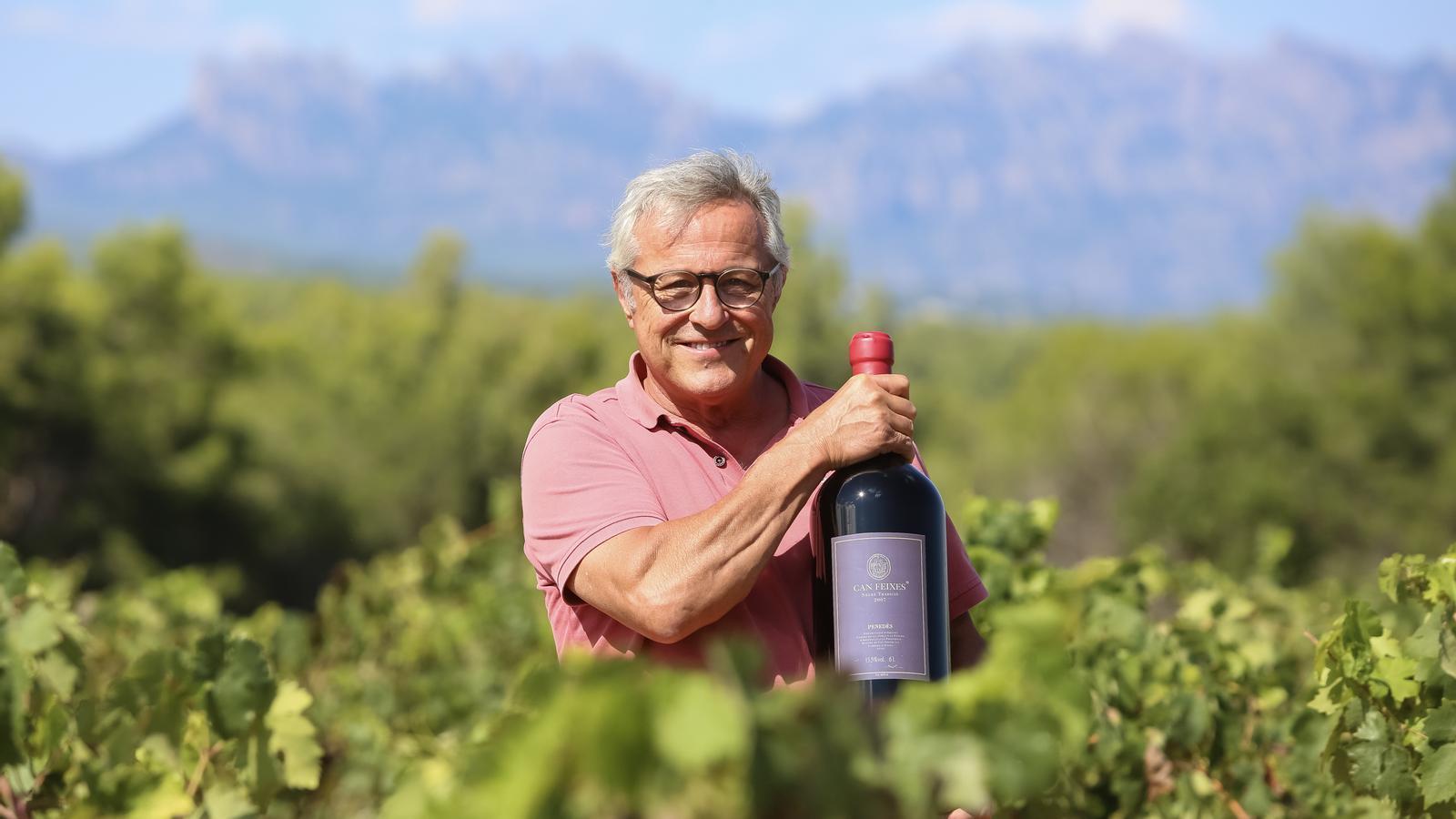The Penedès DO has become the first in the world to be officially certified as organic.
130 wineries with a total of 5,400 hectares of vineyards in the Penedès have entered this prestigious classification, with which they hope to attract local consumers for their quality.


Cabrera de AnoiaThey've been working for years, and they've finally achieved their goal. This coming harvest, all the grapes registered as the Penedès DO will be organic. This is announced by the president of the DO, Joan Huguet, just as winegrowers are preparing for the harvest. In total, this certification, the first in the world for a designation of origin, involves 130 wineries, with a total of 5,400 hectares cultivated using organic farming. "In the Penedès, there are a total of 14,000 hectares of vineyards, but they are registered under other designations of origin, such as the DO Catalunya, the DO Cava, or Corpinnat," says Huguet. By regulation, therefore, starting with this harvest, wines that wish to enter the Penedès DO must be organic; otherwise, they will be excluded.
"This important step has been achieved thanks to the leadership of Josep M. Albet Noya, from the Albet y Noya winery in Sant Pau de Ordal, who was the first producer of good organic wines in Europe," explains Joan Huguet, emphasizing the expression "good wines." When Albet y Noya launched organic wines on the market, they were already available, "but not of the quality he produced, as he is a great fighter and a leader in organic farming." Being 100% organic as a designation of origin means not using synthetic chemical products as fertilizer in the soil; nor phytosanitary products; it implies respecting nature without adding any external elements that come from chemicals, but, instead, from nature: the vineyard." To make a comparison with the human body, Joan Huguet uses orange juice or antibiotics. "If we drink orange juice every day to prevent colds, then you shouldn't take antibiotics; the natural preventative methods we apply in the vineyard are the same: using natural solutions so we don't have to resort to any chemicals."
The land, for the future
The road to the 2025 harvest, which is entirely organic, has not been easy. Wineries must have passed official certification from the CCPAE, the administrative control body, which inspected all vineyards registered within the Penedès DO. It has been slow and steady work; and, little by little, all the wineries have understood that this was the way to seek quality and distinction with other designations of origin. "Also because preserving the land requires organic farming; we want the land to be alive and not like beach sand, that is, dead," says Joan Huguet, who is also a winemaker at the Can Feixes winery in Cabrera d'Anoia, and a sparkling winemaker at Corpinnat.
Since the Penedès DO decided to shift toward organic farming, there have been several changes, which the president quantifies. "In 2022, 19 million bottles were sold; in 2023, 17 million, and last year, in 2024, 15 million," he says. This means that some wineries have not wanted to continue in the Penedès DO so as not to change the cultivation methods in the vineyards. And, at the same time, there are other reasons that explain the 25% drop in sales, such as the drop in wine consumption. "But above all, it's because, in recent years, there have been declines in wines within the Penedès DO, because they haven't accepted organic farming methods," says Huguet, who adds that they don't have a quantification of how many wineries have moved to the Catalunya DO.
However, for the president, Joan Huguet, being organic means that the wines have added value; they will be more valued in every sense; in respect for nature and for what it entails to take care of the land, and also in a higher price, because the production costs for the winegrower are higher. "Especially because the winemakers of the DO Penedès are clear that there is only one land, and it must survive us because we have to leave it to our children."
Regarding added value, Joan Huguet comments that the ultimate goal of the DO Penedès is to lead the trend of ecology, while ensuring that local consumers choose Penedès wines for their high quality. "When we were little, andThe white wine we all had at home was from Penedès, but now we would surely find other denominations of origin that are not Catalan," says Huguet, who adds: "we are not chauvinists, and the only thing we defend as our own is FC Barcelona; with the rest, we opt for other foreign brands when we have very good ones at home."
Continuing with the thread of white wines, the president of the DO maintains that "in Barcelona, five times more of the Rueda DO are sold than the Penedès; and this makes no sense." It is clear that there may be many reasons that explain why the Penedès does not lead the market: "it has lived in the shadow of the Cava DO, which was the one that provided the most added value; It is close to Barcelona, which does not marry anyone, which is not the case with the other Catalan capitals that have designations of origin nearby, such as Girona, Tarragona or Lleida." For all these reasons, Joan Huguet believes that organic certification will be an opportunity to demonstrate the quality of the Penedès, where high-quality white, red and sparkling wines are made.
